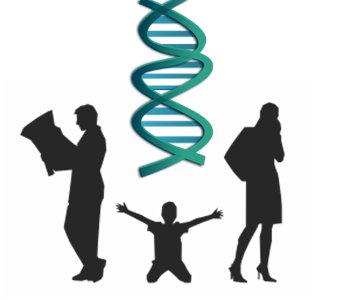
Direct-to-consumer (DTC) genetic tests are a fun way to learn about your family history, ancestry and maybe even a bit about your future health risks. But occasionally, they can also be a less-than-fun way to find relatives that can destroy a marriage.
This is exactly what happened to a stem cell biologist’s family. He gave his parents a genetic test as a gift but instead of fun, they found a long-lost son the dad had fathered years ago with another woman. This was something the family could not deal with and the end result of this “misattributed paternity” was divorce.
Because of how these tests are set up, this kind of thing could happen to anyone who takes them (as long as they have a skeleton or two in their closet that is). As is often the case, our stem cell biologist’s results were compared against a database of everyone else that had been tested by that company. The comparison tool found someone who shared around 22% of his DNA with him and flagged that relative as a likely half-brother. (Click here to learn why half-siblings only share on average and not exactly 25% of their DNA.)
It might have ended there if he hadn’t given his parents a genetic test. But he did. When they looked at dad’s data they found that he shared 50% of his DNA with the same half-brother. Dad had fathered a child with a different woman and this genetic finding ultimately led to a divorce.
Now nothing is foolproof, but it seems like we need to do as much as we can to minimize the risk of this sort of thing happening. One thing that some of these companies do (including the company he used, 23andMe) is to make a customer opt in to use the relative finder tool instead of opting out. In theory, this gives the customer the power to decide whether or not to look before getting a sneak peek. (23andMe had talked about changing things to have customers opt out instead but they have changed their mind.)
Unfortunately, if this story is anything to go by, this probably isn’t enough. At the time of their testing, our stem biologist and his family had to opt in to use the relative finder tool. They did so and still found their troubling result. In fact, our scientist, who had a Ph.D. in biology, had his father opt in after he had already identified his half-brother.

